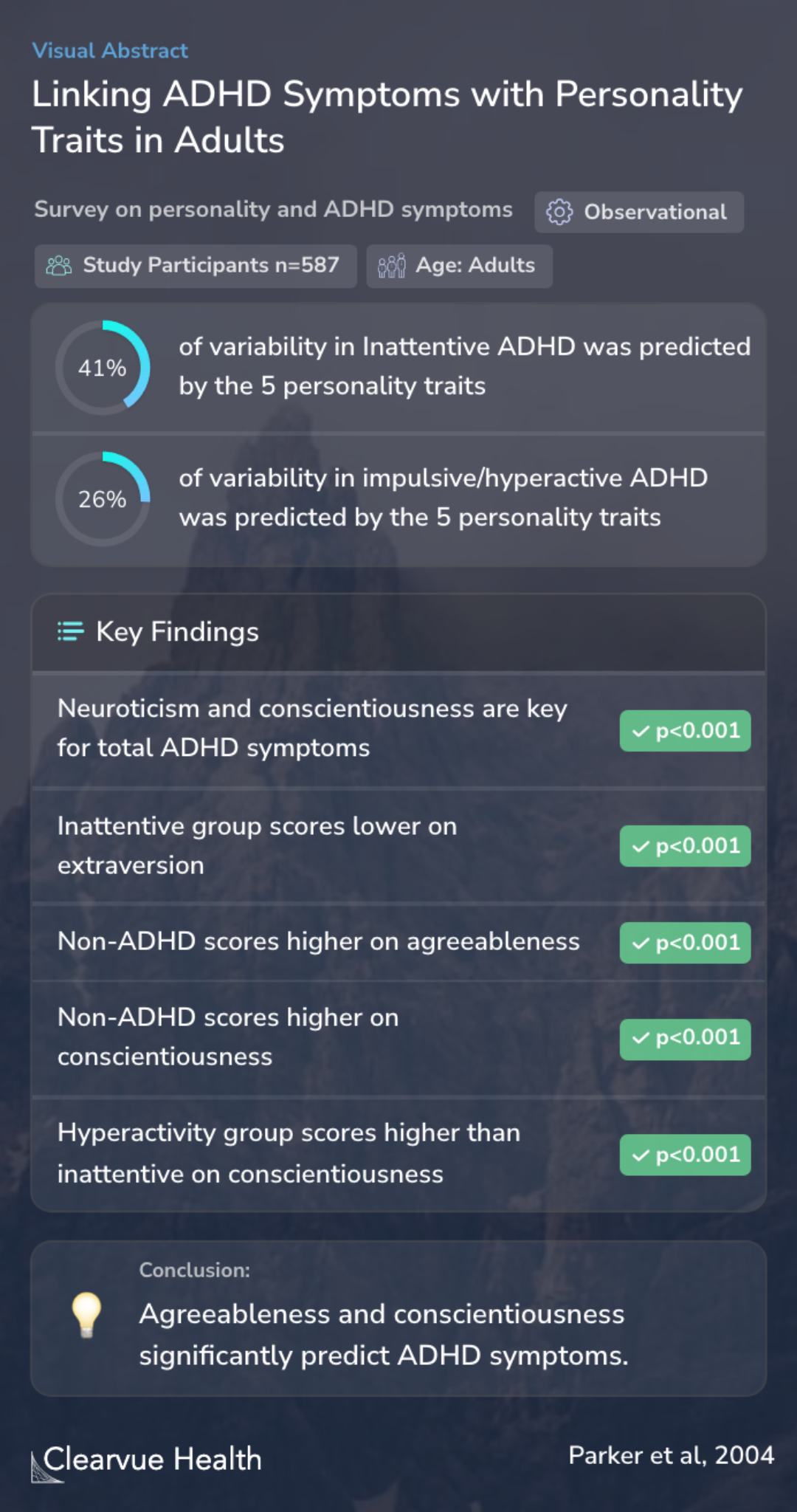ADHD symptoms and personality: relationships with the five-factor model
Linking ADHD Symptoms with Personality Traits in Adults
James D.A. Parker, Sarah A. Majeski, V.Terri Collin

Objectives
The study delved into how ADHD symptoms relate to basic personality traits in a large group of adults. It used a known model called the Five Factor Model of Personality (FFM), which breaks down personality into five main traits: agreeableness, extraversion, conscientiousness, neuroticism, and openness to experience. Each trait has specific behaviors associated with it, like being kind and friendly (agreeableness) or being energetic and bold (extraversion). The study aimed to see how these traits might connect with the way adults show symptoms of ADHD, which is a condition that affects attention and self-control.
This study examined the relationship between ADHD symptoms and basic personality in a large sample of adults (122 men and 465 women).
Methods
In this part of the study, 587 adults, including 122 men and 465 women, filled out two key surveys. One was the DSM-IV ADHD Scales from the Conners Adult ADHD Rating Scale (CAARS), which checks for ADHD symptoms. The other was the NEO Five-Factor Inventory (NEO-FFI), a survey that measures the five main personality traits. This method allowed the researchers to see if there's a pattern between ADHD symptoms and personality traits in adults.
Participants completed the DSM-IV ADHD Scales from the Conners Adult ADHD Rating Scale (CAARS) as well as the NEO Five-Factor Inventory (NEO-FFI).
Results
The results showed that not all personality traits are equally linked to ADHD symptoms. Specifically, agreeableness and conscientiousness were found to be more important in predicting ADHD symptoms than extraversion and neuroticism. This means that how agreeable and conscientious someone is could tell us more about their ADHD symptoms than how outgoing or emotionally stable they are. This finding is new compared to older studies that focused more on extraversion and neuroticism.
Collectively, the five scales on the NEO-FFI accounted for substantial amounts of variability in ADHD symptoms. Although previous research on personality and ADHD has focused primarily on extraversion and neuroticism, the present study found that agreeableness and conscientiousness were ...
Conclusions
In conclusion, the study found a significant link between two personality traits, agreeableness and conscientiousness, and ADHD symptoms. This is a bit different from past research, which often focused on other traits like extraversion and neuroticism. By understanding these connections better, we might improve how we help adults with ADHD.
The study concludes that agreeableness and conscientiousness have a significant relationship with ADHD symptoms, differing from the traditional focus on extraversion and neuroticism.
Key Takeaways
Context
Other research also suggests that ADHD is often found with other mental health issues. For example, one study noted higher rates of psychiatric and personality disorders among people with ADHD.
Another study pointed out that adults with ADHD might struggle more with feeling empathy, which can affect their relationships. These studies, along with the current one, help us understand the complex ways ADHD can influence a person's personality and mental health.